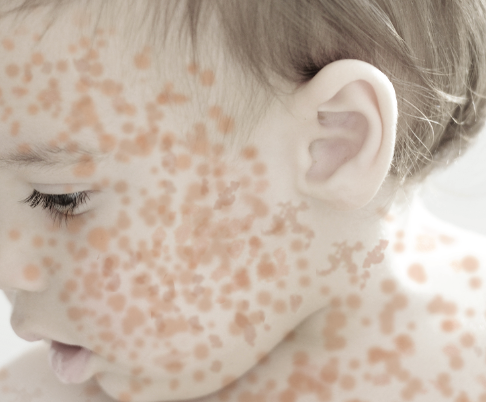
It should not have happened, and yet it did. Despite decades of medical advancements, measles, the most contagious virus infecting humans, remains endemic in many parts of the world. In 2000, the United States declared the virus eliminated, thanks to the highly effective measles-mumps-rubella (MMR) vaccines. However, as of 2025, over 1,200 cases have been reported in the U.S., with significant outbreaks in Ontario, Canada, and Chihuahua, Mexico. Alarmingly, most U.S. cases involve unvaccinated children and young adults, with at least three fatalities reported.
This resurgence underscores the growing threat posed by declining vaccination rates, increased travel, and community spread in undervaccinated populations. Several factors contribute to this situation, including public skepticism about the necessity of ongoing vaccination, the spread of misinformation regarding vaccine safety, and a general mistrust of health authorities. Additionally, vaccine fatigue following the COVID-19 pandemic has further complicated efforts to maintain high vaccination rates.
Understanding the Importance of MMR Vaccination
The MMR vaccine remains the only effective tool to prevent measles and its potentially severe complications. Recommended in the U.S. since the 1960s, the vaccine is administered in two doses: the first at 12 to 15 months and the second between 4 to 6 years of age. One dose of the vaccine provides approximately 93% protection, while two doses increase this to about 97%.
For those exposed during outbreaks or before international travel, the vaccine can be administered as early as 6 months of age, although doses given before the first birthday do not offer long-term immunity. Thus, two doses after the age of one are recommended for optimal protection. The vaccine is contraindicated for individuals with moderate to severe immune suppression or during pregnancy.
Challenges in Measles Treatment
Currently, there are no specific antiviral treatments for measles. Medical care focuses on alleviating symptoms and managing complications such as bacterial infections, which can be severe. In hospitalized children, vitamin A is sometimes used to manage severe cases, but due to potential toxicity, this should only be done under professional supervision. It is crucial to remember that vitamin A is not a cure and does not prevent measles; only vaccination can provide protection.
Historical Context and the Path Forward
Before the introduction of vaccines in the 1960s, measles was a ubiquitous childhood infection, causing millions of deaths annually worldwide. Improved sanitation and medical care reduced mortality rates in developed countries, but the disease remained a significant threat. The introduction of the measles vaccine drastically reduced incidence, although public uptake was initially slow due to cost and low demand.
It wasn’t until school vaccination requirements and federal funding were established that the U.S. could declare measles eliminated. However, global efforts to eradicate the virus continue, with vaccination rates declining during the COVID-19 pandemic, leading to a 20% increase in reported cases from 2022 to 2023.
“To reliably prevent measles circulation in communities, vaccination rates need to be maintained at near 95%.”
Building Confidence and Combating Misinformation
To address the current measles resurgence, it is vital to build trust with unvaccinated and undervaccinated populations. This involves developing personal relationships, listening to concerns, and aligning on the shared goal of health and safety. Engaging community leaders and leveraging their influence can help reestablish vaccination as a societal norm.
On a broader scale, combating misinformation requires collaboration with media and social media platforms, although these efforts have limitations. Health professionals can contribute by participating in media interviews and sharing accurate information online. Long-term solutions include strengthening education in media literacy and critical thinking, equipping future generations to navigate misinformation effectively.
Looking Ahead: Sustaining the Fight Against Measles
Recent weeks have shown a slowdown in identified measles cases in the U.S., but the fight is far from over. MMR vaccination remains the cornerstone of measles prevention. Healthcare professionals must continue to engage in informed discussions with patients, dispelling myths and reinforcing the importance of vaccination.
As international travel increases, it is crucial to assess vaccination status and recommend MMR for unvaccinated individuals aged six months and older. Vigilance is necessary to identify and respond to new cases promptly. The path forward requires sustained effort, but with continued commitment, the goal of measles eradication remains within reach.
For more information on measles, visit the National Foundation for Infectious Diseases website.







